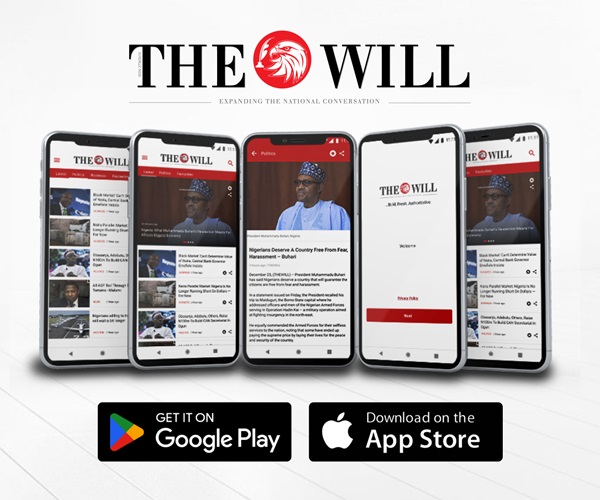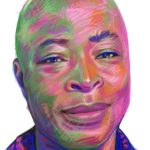January 05, (THEWILL) – As allies, 2023 presidential candidates, former Vice President Atiku Abubakar of the Peoples Democratic Party alongside Labour Party’s Peter Obi and New Nigeria Peoples Party’s Rabiu Kwankwaso would constitute a formidable opposition to the governing All Progressives Congress, APC. But politics is not mathematics, more so in the Nigerian space noted for its fractious and fleeting politics.
Without exception, the three parties are crisis ridden. Internal leadership crisis has stalled the formal meeting of the PDP’s National Executive Committee, NEC. The prolonged leadership crisis in the LP, pitting the Nigeria Labour Congress, NLC, against the faction led by Julius Abure, was only recently resolved by the Appeal Court, which restored Abure as National Chairman, even as the warring parties are still on the warpath. The NNPP is currently split into two factions, with Ajuji Ahmed and Boniface Aniebonam as National Chairman.
As top presidential candidates in the last poll, Abubakar, Obi and Kwankwaso still have the individual presence and charisma that commands a large followership, which also makes the slightest hint of alliance among them a big deal.
In addition to being a former two-term governor of Anambra state, former two-term governor of Kano, senator and Minister of Defence and former Vice President of Nigeria, respectively, Obi, Kwankwaso and Abubakar have been very active politically, oiling their political machines regularly.
“The political terrain is barren at the moment. There is no serious opposition,” a professor of political science at the Lagos State University, Sylvester Odion-Akhaine told THEWILL on Friday. “An alliance or merger of political parties is required to make incumbents sit up and govern in the interest of the people. Nigeria desperately needs institutionalised parties capable of articulating an alternative vision of development.”
THE BEGINNING
Three months ago, specifically on September 16, 2024, the deputy national spokesperson of the PDP, Ibrahim Abdullahi hinted that the three prominent opposition leaders in the country were engaged in a potential merger discussion ahead of the 2027 presidential election. He said the merger talks were rooted in the widespread hardship and insecurity in the country occasioned by the policies of the Federal Government.
Speaking to the question in a national television interview, Abdullahi said, “Our concern as a party and to these people that I have mentioned is to ensure that we salvage Nigerians from this despair and despondency, between hunger and frightening insecurity in the land. I am telling you clearly: Peter Obi is suitably qualified; he can aspire and we will support him if he gets the ticket. Atiku Abubakar is suitably qualified and if he gets the ticket, we will rally behind him and give him the desired support to salvage Nigerians out of this situation.
He added that the trio of Abubakar, Obi and Kwankwaso were, “prepared to set aside personal ambitions to create a strong coalition capable of challenging the ruling APC in 2027, with the goal of rescuing Nigerians from hunger.”
Although Abdullahi spoke with certainty, events have proved him wrong. Kwankwaso, never quite in support of any such talks, went full blast in an interview with the Hausa Service of the BBC, mocking the idea and knocking the PDP to boot.
KWANKWASO, OBI, ATIKU REACT
According to Kwankwaso, “I heard from a source that PDP brought in scholars—about 45 of them. They were told that I had agreed to a deal where Atiku Abubakar would serve for four years, I would serve for another four years and Peter Obi would serve for eight years. This is completely false. Such an agreement never existed.
“This issue deeply angers me — to hear that respected elders are spreading lies about something that never happened. I was told that nearly 45 clerics were gathered and informed about this fabricated story. I did not appreciate this at all. Such deceit is part of what led me and others to leave the PDP. These actions have destabilised the party.”
Kwankwaso, the former Kano State Governor, accused the PDP of trying to use manipulative tactics to secure northern votes in future elections and dismissed ongoing speculations of a rotational presidency pact with Atiku Abubakar and Peter Obi.
He emphasised that any future political arrangement must take into cognisance historical facts and must be put in context. “For me to accept any arrangement, we have to go back to history; I understand PDP in totality. I know their plan is to procure a party or beat around the bush in other parties, bring us together and make northerners vote for them,” Kwankwaso said.
A day after the New Year celebrations, Obi declared his stand on the issue. He denied claims that he had discussed a possible merger with the PDP, NNPP or any other political party. But unlike Kwankwaso, Obi was more cautious in choosing his words, saying that there was no such discussion.
Calling on all Nigerians to sink their differences and come together to form a unified front to challenge the ruling APC in 2027, the one-time Anambra State governor said, “There are no merger talks with any party at this moment. We must focus on unity and collective action to bring about the change Nigerians desire.”
Several months earlier, Obi had taken a similar path. He said he was not prepared to join anybody for state capture or for winning an election. All he wants and will stand for is to support any talks that prioritise education of children in the face of over 18.3 million out-of-school children in the country and production that will promote job creation and de-emphasise consumption.
He had said, “We must first of all establish what we are going to achieve by coming together. Collaboration shouldn’t be for just state capture and continuing with the same consumption. If it’s a collaboration for production, we will.”
Efforts by THEWILL to get the former Vice President’s reaction proved abortive. But a dependable source in his camp spoke to this newspaper about Abubakar and the PDP’s position on the matter. According to the source, there have been meetings and there will be meetings as the months wear on and the road to 2027 politics gets clearer. The source added that given the way and manner Kwankwaso had been describing the PDP in uncomplimentary terms, a committee advised the former Vice President to exclude him from a tripartite meeting. The committee, he said, also advised Abubakar not to respond to Kwankwaso’s statement.
“What now happens is that you have a situation where someone is not on the table of discussion and then speaks as if he knows what is going on to the point of exaggeration. I mean those who are not considered worthy to be part of the discussion, will feel left out and do everything to undermine the talks. That is my reading of Kwankwaso’s statements. Note the more cautious response of Obi to the talks,” the source said.
Talking about Obi’s tactful response, an LP presidential spokesperson and currently the National Coordinator of the ‘Obidient Movement,’ Tanko Yinusa told THEWILL that his principal is leaving the door open for discussions. There was never a time any of the political parties discussed a merger, he said, adding: “They, however, exchange pleasantries often.”
According to Yinusa, “Politics is dynamic. As time goes on anything can happen in the future because the truth is that the people that will vote are clamouring for change and their leaders will have to consider what is proper to be done.”
Offering an explanation for the collapse of any party alliance or merger, Professor Odion-Akhaine said it often happens when personal interest trump’s national interest. “Alliance should be built around a common programme,” he said. That is a poser for the trio of Atiku, Obi and Kwankwaso in the days ahead as the politics of 2027 beckons.
Amos Esele is the Acting Editor of THEWILL Newspaper. He has over two decades of experience on the job.






